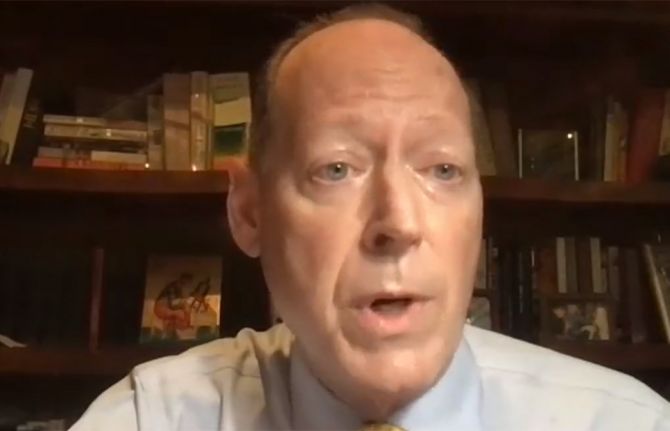

Press Statement
Remembering a global health advocate and renowned doctor
07 March 2022 07 March 2022UNAIDS is deeply saddened at the death of Paul Farmer
GENEVA, 11 March 2022—UNAIDS is deeply saddened at the death of Paul Farmer, anthropologist, doctor and global health champion. He was Kolokotrones University Professor and Chair of the Department of Global Health and Social Medicine at Harvard Medical School, Chief of the Division of Global Health Equity at Brigham and Women’s Hospital in Boston and co-founder of Partners in Health.
“Paul Farmer fought for social justice and human rights and passionately believed in the right to health for all,” said Winnie Byanyima, the Executive Director of UNAIDS. “His work saved millions and showed us the way to reach health care with dignity.”
Partners in Health, a social justice organization founded more than three decades ago, establishes long-term relationships with sister organizations based in settings of poverty. Its main goal is to bring the benefits of modern medical science to those most in need.
In 2000, Mr Farmer and colleagues proved that community-based approaches to HIV treatment in poor settings worked. In 2000, an estimated 4.7 to 8.9 million African children aged 0–17 years had lost one or both parents due to AIDS and HIV had become the world’s leading infectious cause of death among adults with more than 90% of those deaths occurring in low- and middle-income countries. Many had argued that the high cost of antiretroviral medicines (more than US$ 10 000 annually) and the lack of health infrastructure would mean that progress against AIDS would be impossible, but Mr Farmer and his team proved them wrong. His pilot HIV treatment programme in a poor community in rural Haiti that relied on an existing tuberculosis-control infrastructure showed that positive results could be made among people with advanced HIV.
Mr Farmer also advocated that HIV treatment could reinvigorate HIV prevention programmes and argued that, from his experience in Haiti and Rwanda, the rollout of effective antiretroviral therapy lessened HIV-related stigma and discrimination.
In 2012, Mr Farmer and his team celebrated the fact that almost 10 million people living in low- and middle-income countries were on antiretroviral therapy. Later, he focused on people dying of hepatitis C, like HIV a treatable and preventable disease, and regretted that at the time of his death nearly 10 million people living with HIV still did not have access to treatment.
In late November 2021, Mr Farmer joined a virtual UNAIDS panel ahead of World AIDS Day. He stressed that all human lives have the same value and that everyone has the inalienable right to be healthy and to fulfil their potential. Drawing parallels between COVID-19 and HIV, he said, “Inequality is a major driver of pandemics in general. As with AIDS as with structural racism, gender inequality and various forms of social marginalization, active processes continue to structure risk for COVID-19 and also for the fruits of science that have been marshalled to fight it.”
UNAIDS is saddened by the death of Prof Paul Farmer, a passionate advocate for HIV treatment, who showed the world that AIDS-related deaths can be reversed with access, rights & compassion. The global health community has lost a pioneering leader, but his work will continue on. pic.twitter.com/UVS7JP8xuj
— UNAIDS (@UNAIDS) February 21, 2022
He added, “We are now living in a time of vaccine apartheid ... were we to have had a vaccine for HIV, it would be a similar challenge. So, it is, in fact, not two different pandemics posing two discreet sets of challenges but two colliding pandemics.”
As Mr Farmer repeated over and over again during his life, it is our collective duty to take the steps needed to tackle inequalities. UNAIDS, in its 2021 World AIDS Day report, Unequal, unprepared, under threat: why bold action against inequalities is needed to end AIDS, stop COVID-19 and prepare for future pandemics, warned that if the transformative measures needed to end AIDS are not taken, the world will also stay trapped in the COVID-19 crisis and remain dangerously unprepared for the pandemics to come.
Partners in Health has organized an online memorial service at 10:00–12:00 Eastern Time (16:00–18:00 Central European Time) on 12 March 2022 to honour his work.
